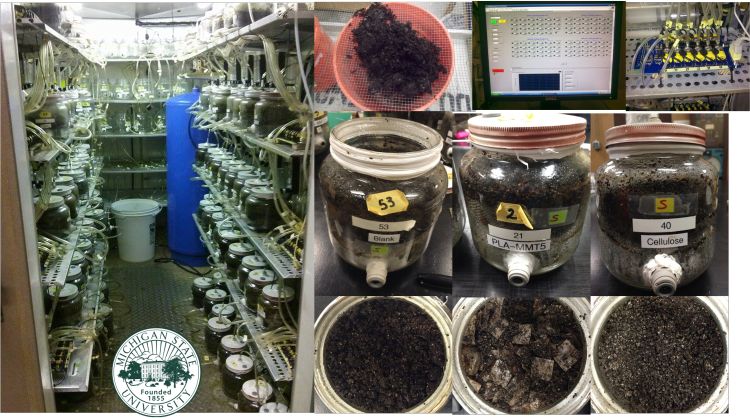
Compostability certification of polymers is time-consuming and expensive. Approaches to accelerating the biodegradation of these polymers in simulated composting conditions can facilitate and speed up evaluating potential compostable polymers.
Biodegradation of polymers in composting conditions is an alternative end-of-life scenario for contaminated materials collected through the municipal solid waste management system, mainly when mechanical or chemical methods cannot be used to recycle them. Compostability certification requirements are time-consuming and expensive. Therefore, approaches to accelerate the biodegradation of these polymers in simulated composting conditions can facilitate and speed up the evaluation and selection of potential compostable polymer alternatives and inform faster methods to biodegrade these polymers in real composting.
This review highlights recent trends, challenges, and future strategies to accelerate biodegradation by modifying the polymer properties/structure and the compost environment. Both abiotic and biotic methods show potential for accelerating the biodegradation of biodegradable polymers. Abiotic methods, such as the incorporation of additives, reduction of molecular weight, reduction of size, and reactive blending, are potentially the most straightforward, providing a level of technology that allows for easy adoption and adaptability.
Novel methods, including the concept of self-immolative and triggering the polymer chains in specific conditions, are increasingly sought. In terms of biotic methods, dispersion/encapsulation of enzymes during the processing step, biostimulation of the environment, and bioaugmentation with specific microbial strains during the biodegradation process are promising to accelerate biodegradation.
The open-source article can be found
here.
This article was originally published by the School of Packaging.
About the MSU Innovation Center:
The MSU Innovation Center is dedicated to fostering innovation, research commercialization, and entrepreneurial activities from the research and discovery happening across our campus every day. We act as the primary interface for researchers aiming to see their research applied to solving real-world problems and making the world a better place to live. We aim to empower faculty, researchers, and students within our community of scholars by providing them with the knowledge, skills, and opportunities to bring their discoveries to the forefront. Through strategic collaborations with the private sector, we aim to amplify the impact of faculty research and drive economic growth while positively impacting society. We foster mutually beneficial, long-term relationships with the private sector through corporate-sponsored research collaborations, technology licensing discussions, and support for faculty entrepreneurs to support the establishment of startup companies.
Is your company interested in investing in future composting solutions? Click Here.

